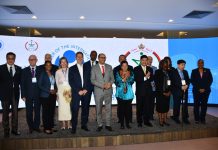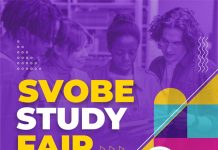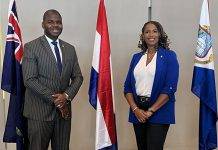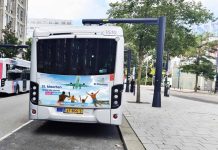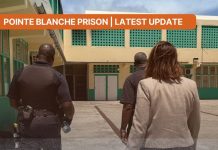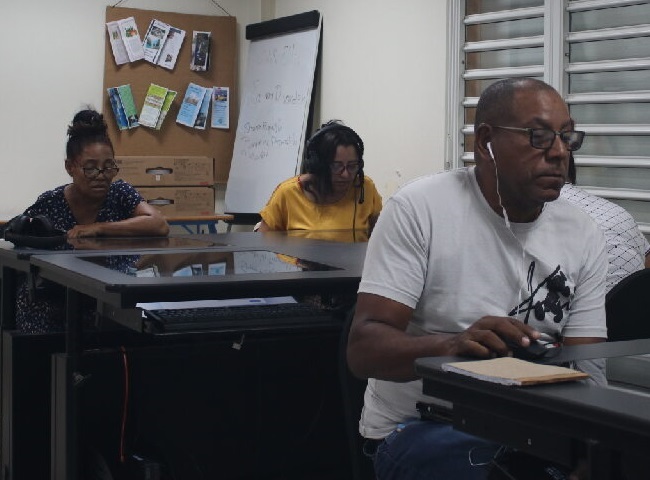
PHILIPSBURG — Twenty-two individuals from the National Recovery Program Bureau’s (NRPB) Livelihood Restoration Plan this week began a transformative journey by pursuing English as a Second Language (ESL) at the University of St. Martin (USM). This initiative is a key part of NRPB’s effort to support residents who were relocated from areas adjacent to the landfill. The relocation of this community was necessary for the NRPB to make crucial interventions into the waste management at the dump under the Emergency Debris Management Project (EDMP) in the aftermath of Hurricane Irma, which devastated St. Maarten seven years ago.
USM’s ESL program has helped dozens of residents over the years to learn English or improve their English language skills.
“This initiative is about much more than learning a new language,” said USM ESL Coordinator Corinne Lejeuz-van Putten. “It’s about empowering individuals with the skills they need to rebuild their lives and contribute meaningfully to the community. We are proud to support NRPB in this important endeavor.”
The resettled residents of Pond Island are being supported by NRPB according to World Bank guidelines, which ensure that they are either better off or, at the very least, not worse off after their relocation. In addition to ESL classes, NRPB’s Livelihood Restoration Plan includes vocational courses such as Financial Literacy, Basic IT/Computer Operational Skills and a Food Handlers Certification. The courses were chosen based on the skills of the relocated people with the intention of helping them to find employment, or to create a supplemental source of income.
This project is implemented by the NRPB on behalf of the Government of St. Maarten under the St. Maarten Trust Fund, which is financed by the Government of the Netherlands, and managed by the World Bank. The Livelihood Restoration Plan is part of the NRPB’s broader Resettlement Action Plan that helped relocate these residents to better living conditions.
The participants took placement tests last week to gauge their English proficiency and determine which level of the ESL course they would begin studying. ESL classes for everyone begin on September 23rd and are made up of three 2-hour sessions a week. The course focuses on speaking, listening, reading, and writing, providing a well-rounded foundation for students to enhance their English-speaking skills. With USM’s commitment to small class sizes and personalized instruction, participants can expect guided support as they learn.
Alvaro Vadillo, EDMP Project Manager at NRPB, expressed the organization’s focus on restoring and improving the livelihoods of people affected by the Emergency Debris Management Project. “By offering comprehensive programs such as ESL, we ensure that the individuals we resettled are supported and empowered to succeed. This initiative, guided by the World Bank’s safeguard policies, is part of our broader obligation to guarantee that the communities we work with are not left worse off. Knowing the participants are taking steps toward better futures, demonstrates the positive impact of the Livelihood Restoration Plan.”
The collaboration between NRPB and USM reflects a shared goal of empowering St. Maarten residents to build better futures. The Livelihood Restoration Plan (LRP), with its focus on restoring and enhancing existing livelihoods, reflects the NRPB’s commitment to supporting people affected by the EDMP by helping them continue what they know best while also providing opportunities for improvement and diversification.
According to Dr. Gale T C Rigobert. Dean of Academics, “USM’s role in this initiative underscores its ongoing dedication to lifelong learning and community development.” USM offers several degree programs in areas such as business, social work and education, along with GED courses, which equip people with high school equivalency diplomas.
For more information on ESL and USM, contact esl@usm.sx or info@usm.sx or visit www.usm.sx.

